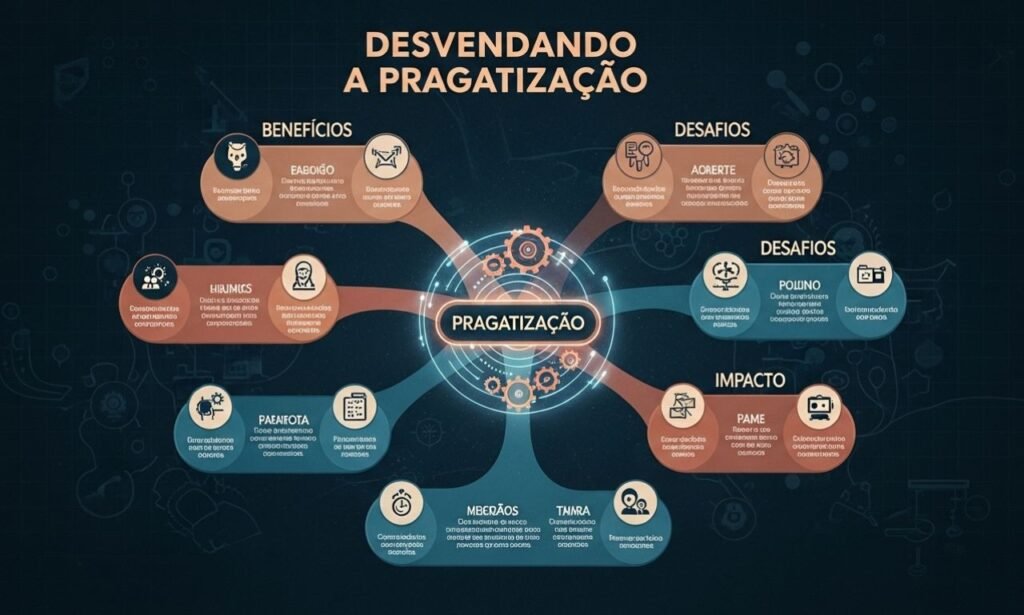In today’s rapidly changing world, progress is not just a desire but a necessity. Every society, organization, and individual seeks ways to evolve and remain relevant in the face of new challenges. One concept that captures this idea beautifully is pragatizacao. This term reflects a mindset and approach dedicated to forward movement, growth, and the embrace of innovation in multiple aspects of life. Whether applied to technology, education, culture, or personal development, pragatizacao offers a framework for positive transformation.
Understanding the Meaning of Pragatizacao
At its core, pragatizacao refers to the process of progressive change. It emphasizes the idea that societies and individuals must consistently strive toward improvement instead of remaining stagnant. The concept integrates the balance between tradition and modernity, ensuring that while new ideas are embraced, the essence of heritage is not lost. This duality makes pragatizacao an appealing and practical philosophy for those aiming to move ahead without losing their roots.

In a global context, pragatizacao embodies the desire of communities to modernize infrastructure, adopt digital technologies, and rethink outdated practices. On a personal level, it represents the effort to learn new skills, adapt to shifting lifestyles, and build a mindset that is resilient to change.
The Role of Pragatizacao in Education
Education has always been the backbone of development. Pragatizacao in education means going beyond traditional methods of teaching and learning. Today, classrooms are no longer limited to chalkboards and textbooks. Instead, digital platforms, interactive tools, and global collaborations have redefined how students learn and educators teach.
By applying pragatizacao in education, institutions can prepare students not only for present challenges but also for future ones. For example, teaching problem-solving, critical thinking, and adaptability becomes just as important as memorizing facts. This progressive outlook ensures that future generations can thrive in careers and environments that may not even exist today.
Pragatizacao and Technology
Technology is one of the clearest examples of pragatizacao in action. Every new invention, from smartphones to artificial intelligence, represents humanity’s urge to progress. Businesses, governments, and individuals who embrace technological pragatizacao often find themselves ahead of the curve.
Consider the digital transformation that reshaped global industries. Companies that adopted online systems, automation, and data-driven decision-making have grown significantly, while those resisting change often struggled. Pragatizacao encourages openness to such transitions, ensuring continuous growth and sustainability.
Cultural Dimensions of Pragatizacao
Progress is not only about technology and education—it also extends into culture. Pragatizacao in cultural contexts means embracing diversity, inclusivity, and openness to new ideas while respecting traditions. A society practicing cultural pragatizacao encourages dialogue, mutual respect, and creativity.
For instance, art, literature, and music today are influenced by global trends while still holding local significance. This merging of ideas enriches communities and strengthens their collective identity. The concept of pragatizacao ensures that cultures remain alive and evolving instead of becoming outdated relics.
Pragatizacao in Personal Development
On an individual level, pragatizacao means self-growth. It encourages a person to seek knowledge, embrace challenges, and adapt to new circumstances. Personal pragatizacao might involve learning a new language, acquiring digital skills, or even adopting healthier lifestyles.
This perspective creates a mindset where people see obstacles as opportunities for growth. Someone practicing pragatizacao does not shy away from change but welcomes it as a natural step toward a better version of themselves. Over time, this mindset can build resilience, confidence, and long-term success.
Challenges to Pragatizacao
Despite its benefits, pragatizacao is not without challenges. Resistance to change is one of the biggest barriers. Many people and institutions prefer the comfort of tradition and fear the uncertainty of progress. This resistance can slow down innovation and prevent growth.
Another challenge is the unequal distribution of resources. While some communities have access to modern technologies and education, others are left behind. For pragatizacao to succeed globally, efforts must focus on bridging these gaps and ensuring inclusive progress.
Lastly, rapid progress sometimes brings ethical concerns. For example, advancements in artificial intelligence, biotechnology, or surveillance technologies raise questions about privacy, morality, and long-term consequences. Pragatizacao must therefore balance progress with responsibility.
Real-World Applications of Pragatizacao
The concept of pragatizacao is visible across various real-world applications:
- Urban Development: Cities adopting smart infrastructure, sustainable energy, and green technologies demonstrate pragatizacao in action.
- Healthcare: Innovations like telemedicine and AI-driven diagnostics are reshaping healthcare systems worldwide.
- Business: Startups and global companies alike thrive by practicing pragatizacao, adapting to market demands, and exploring innovative models.
- Social Movements: Calls for gender equality, environmental sustainability, and human rights reflect pragatizacao in the social sphere.
Each of these examples proves that pragatizacao is more than just a concept—it is a guiding principle shaping our modern world.
The Future of Pragatizacao
Looking ahead, pragatizacao will play an even greater role in shaping our lives. As technology continues to evolve and global challenges such as climate change demand innovative solutions, societies must adopt progressive mindsets. Countries that embrace pragatizacao will lead the way in creating sustainable, inclusive, and prosperous futures.
For individuals, the future of pragatizacao means embracing lifelong learning. Careers will no longer be defined by a single skill but by adaptability, creativity, and resilience. Those who practice pragatizacao will be prepared to thrive in this uncertain but exciting future.
Conclusion
In summary, pragatizacao is more than just a word—it is a philosophy of life, progress, and transformation. It calls on individuals, communities, and nations to embrace change positively, balance tradition with innovation, and strive toward growth in every aspect of life.
From education to technology, culture to personal development, pragatizacao serves as a guiding light for modern progress. While challenges such as resistance, inequality, and ethical dilemmas exist, the benefits of adopting pragatizacao far outweigh the drawbacks.
As we move forward into an unpredictable future, one thing is certain: pragatizacao will remain the key to unlocking growth, innovation, and resilience. Embracing this mindset ensures not only survival but also success in the modern world.


Leave a Reply